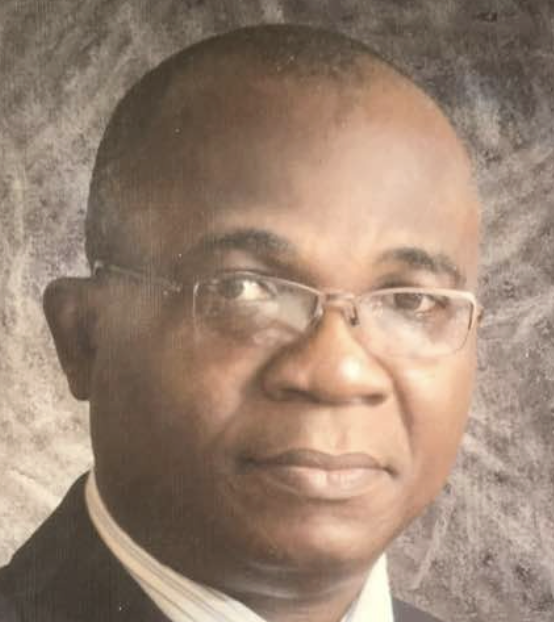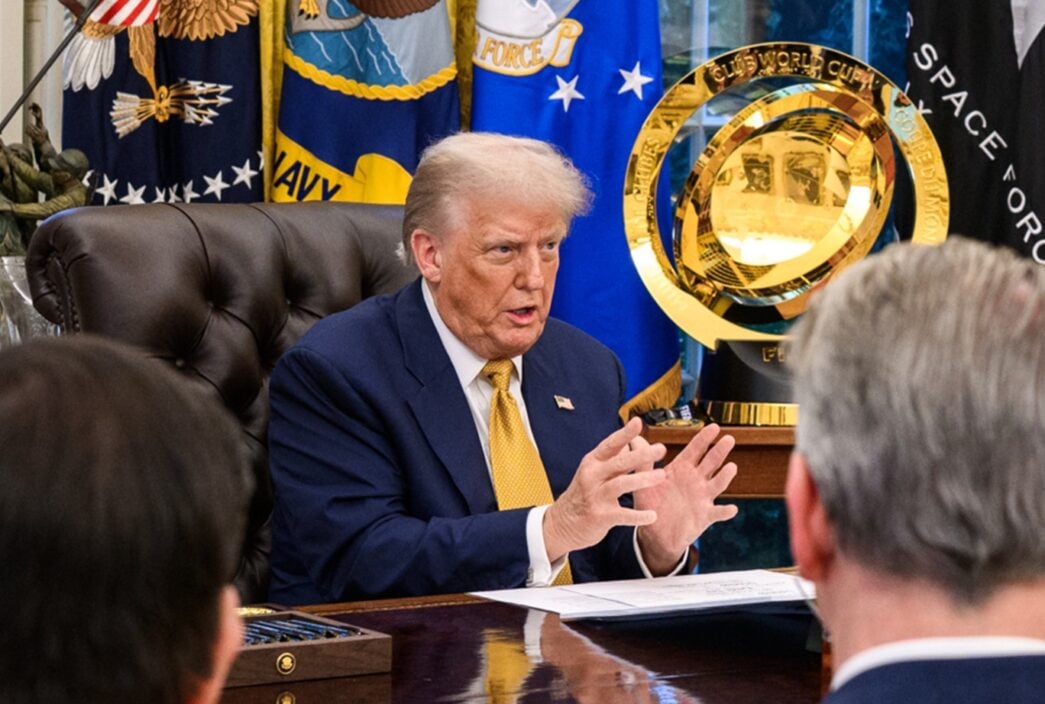In an age when nations wield virtue as strategy and ego as statecraft, Ati John examines how moral rivalry is reshaping power from Washington to Abuja, and why humility may yet prove the strongest weapon of all.
When the United States recently designated Nigeria as a Country of Particular Concern, accusing it of failing to protect Christians from persecution, the decision was framed as a moral act. American officials invoked conscience, freedom of worship, and the universal duty to defend human rights. But beneath the moral vocabulary lay another story, one about power, pride, and politics. Within hours, China’s Ministry of Foreign Affairs issued a counterstatement warning Washington against using religion as a “pretext for interference.” Nigerian authorities, caught between two superpowers, condemned the American judgment and thanked Beijing for its defense. In that moment, a debate about faith became a contest of influence, and a moral question turned into a geopolitical alignment. What should have been a sober reflection on justice and reform transformed into a theatre of global posturing.
This episode may seem small in the rush of world events, yet it captures a deeper transformation in international affairs. We are entering an age of moralized power, where virtue has become strategy and values have become weapons. Governments now compete not only for territory or trade but for the right to define what is good, and in this new competition, the boundary between ethics and ambition has all but disappeared.
At the center of this moral arena stands a familiar figure, the Big Man. Once thought to be an African political archetype, the Big Man has gone global. He is the populist president who sees himself as the embodiment of the nation, the strongman whose personal image substitutes for state institutions, the charismatic leader who treats diplomacy as performance. He may wear a business suit or a party uniform, but his creed is the same: the belief that national dignity and personal prestige are one and the same. In this world, power flows not through institutions but through personality; loyalty replaces law, and image outshines substance.
Advertisement
Across capitals, from Washington to Beijing to Abuja, this psychology now shapes international behaviour. The United States under Donald Trump redefined diplomacy as personal theatre, where moral declarations served domestic audiences as much as global justice. China under Xi Jinping has institutionalised its own form of centralised charisma, presenting the leader as philosopher-king and guardian of harmony against Western hypocrisy. Nigeria, under successive administrations, continues the long tradition of personalised rule, where alliances and rhetoric shift according to the leader’s political needs. Each of these actors speaks the language of virtue, yet each does so in the grammar of self-interest.
The moral vocabulary itself has become strategic currency. Joseph Nye, who once described power as the ability to attract rather than coerce, argued that influence rests on persuasion, the quiet authority of example. For decades, this was America’s secret strength. But that currency has depreciated. The United States still speaks the language of liberty, yet its tone often carries the weariness of moral fatigue. China, sensing opportunity, has minted an alternative moral language, development without humiliation, loans without lectures, partnership without interference. It appeals to nations tired of being judged by Western standards. Both powers now compete to be admired, not just obeyed. The contest is not about who holds more weapons, but whose story of virtue the world believes.
For countries like Nigeria, this rivalry offers both leverage and peril. Nigeria’s leaders have learned to navigate between the moral empires with transactional dexterity: rebuffing Washington’s criticism by embracing Beijing’s support, and turning back to the West when Chinese pressure becomes overbearing. It is a sophisticated dance of survival. But it is also a dependency. When morality becomes a bargaining chip, it ceases to be a compass. Over time, moral diplomacy turns states into actors in someone else’s script.
Advertisement
The dynamic resembles a prestige game in which each player strives to appear firm, righteous, and in control, but none can afford to yield. The United States cannot risk silence without alienating its domestic base; China cannot appear submissive before the Global South it courts; and Nigeria cannot afford to look weak before a population conditioned to equate sovereignty with pride. Thus, each side doubles down, escalating rhetoric to protect image. The result is not open conflict but performative confrontation, a loud but fragile equilibrium where the appearance of strength replaces the substance of security.
Within this contest, Nigeria’s internal wounds become global symbols. The violence in its Middle Belt and the North-West, the attacks on worshippers, and the impunity of armed groups are grim realities. Yet because the state has failed to deliver impartial justice, these tragedies have been absorbed into foreign narratives. Western policymakers cite them as proof of moral decline; China invokes them to demonstrate Western hypocrisy. In this way, the suffering of ordinary Nigerians becomes ammunition in the moral wars of great powers. Victims are invoked but seldom heard. If Nigeria were to strengthen its judicial institutions and guarantee equal protection for all citizens, the moral leverage of others would vanish. No one can weaponize justice already served.
The danger, however, is that moral confrontation rarely stays symbolic. Once nations define their identity through righteousness, compromise becomes weakness. The next phase is often the militarisation of morality, the deployment of power to prove virtue. The Gulf of Guinea already witnesses a growing overlap of American and Chinese naval activities, each justified as peacekeeping or anti-piracy operations. Yet every exercise is also a statement of presence. Nigeria, seeking cooperation from both, becomes the stage on which rival forces perform discipline and restraint. In such a charged atmosphere, an accident, a misread signal, an overflight, an intercepted vessel, could become a flashpoint. When leaders are Big Men, even small incidents threaten their sense of infallibility. The risk of escalation lies not in ambition but in emotion.
Africa thus stands at a dangerous crossroads. The continent’s sovereignty is being courted by competing moral orders, and its nations risk becoming theatres of ideological rivalry disguised as partnership. The new scramble for Africa is not about land but about legitimacy, about who can claim to represent the moral future of the world. For Africa to survive this moral siege, it must cultivate its own institutional backbone. Nigeria, the continent’s largest democracy, carries special responsibility. Its government must show that dignity and accountability can coexist, that defending sovereignty requires first defending citizens. Sovereignty without justice is insecurity by another name.
Advertisement
In this environment, restraint becomes the rarest and most revolutionary form of leadership. The ability to de-escalate without surrendering dignity is now the highest art of statecraft. Yet restraint requires institutional confidence, a bureaucracy strong enough to absorb pressure and a leader wise enough to separate personal pride from national interest. Unfortunately, the current world order rewards the opposite: impulsive rhetoric, moral grandstanding, and the politics of outrage. The global information space feeds on conflict; social media converts indignation into political capital. As a result, the leaders most able to inflame their followers are often the least capable of calming them.
What the international community needs is not another sermon on virtue but a moral compact for power, an understanding that principles should guide policy without becoming its weapon. Moral accountability must begin at home. Western nations cannot preach human rights while profiting from injustice abroad. China cannot defend sovereignty abroad while repressing dissent at home. Nigeria cannot demand respect abroad while tolerating impunity within. The real test of a state’s virtue lies not in how loudly it condemns others but in how honestly it reforms itself.
Such a compact would reframe global morality as partnership rather than punishment. It would acknowledge that sovereignty carries responsibility, that accountability strengthens independence, and that disagreement need not imply disrespect. The world will always argue, but it can learn to argue within bounds, to replace the cacophony of ego with the harmony of principle.
In military terms, the most effective maneuver is often the one not taken. The same truth applies to diplomacy. Restraint is not capitulation; it is the ultimate proof of confidence. Nigeria must respond to criticism with evidence, not indignation. The United States must temper its moral zeal with humility, remembering that credibility is maintained through example, not coercion. China must prove that its respect for sovereignty does not mask new dependencies. Greatness in this century will not belong to those who shout the loudest about morality, but to those who practice it most consistently and most quietly.
Advertisement
The real contest of our time is not between East and West, nor between faith and secularism. It is between ego and empathy. If humanity fails to distinguish the two, we will repeat the tragedies of the past, this time with more technology and less forgiveness. Every conflict begins when leaders stop seeing opponents as human and start seeing them as obstacles to pride. Every peace begins when someone chooses composure over vanity. The strength of a nation lies not in its capacity to confront, but in its ability to prevent confrontation. The most powerful weapon of this century may therefore be humility itself.
The age of Big Men will one day pass, as all ages of ego do. What will remain are the institutions they leave behind. If today’s leaders, from Abuja to Beijing to Washington, can rise above performance and invest in process, they will lay the foundations for a world in which morality ceases to be a cudgel and becomes a mirror, reflecting our shared humanity instead of our competing pride. Until then, we remain in the moral arena, where nations compete not only for power but for the right to define what is good. The task before us is not to abolish that arena, but to elevate it, to ensure that in defending our dignity, we do not destroy our decency.
Advertisement
Rear Admiral Ati-John (rtd) writes from Lagos.
Advertisement
Views expressed by contributors are strictly personal and not of TheCable.



